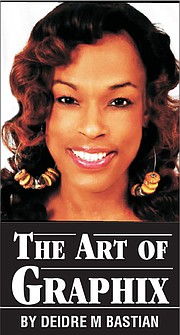Does art really inspire the imagination? If you were to sit in the middle of a white room with no wall art and furniture, would you feel inspired? Well-placed decorations and carefully chosen art pieces are a catalyst for conversation and internal musings.
Human beings have been drawing on cave walls to inspire themselves since the dawn of time, and human brains are wired to appreciate and be inspired by art. Not all people are the same. Artists might favour one form of decorating, while an engineer might prefer another.
Art choices are as much a testament to a person's individuality as they are a springboard for launching new ideas; the artwork selections for a school, office or home can differ wildly. It is best to try to create a space to nurture imagination and creativity to bring greater success to day-to-day life.
Imagination is something totally different from reality. An act of creativity can be grand and inspiring, such as creating a beautiful painting or designing an innovative new product. But an idea need not be artistic or world-changing to count as creative. Life requires daily acts of ingenuity and novel workarounds. In this sense, almost everyone possesses some amount of creativity.
Research shows that creative thinking involves making new connections between different regions of the brain, which is accomplished by cultivating divergent thinking skills and deliberately exposing oneself to new experiences and learning. While research psychologists are interested in tapping innovative thinking, clinical psychologists sometimes encourage patients to use artistic expression as a way to confront difficult feelings.
It is in everyone's interest to nurture creative impulses, regardless of your day job. Creativity is also associated with many factors including conducive environments, ideal collaborators, personality traits, spirituality, and just a hint of serendipity. Finding the right combination of these is not always easy, but the outcomes are well worth it.
Many artists feel they have no or very limited creative ability, and it is true that some are more creative than others. Fortunately, however, creativity can be acquired and honed at any age or experience level. Children are the greatest natural artists because their minds have not yet been programmed to fit adult standards. Because the world is new to them, they see everything with fresh eyes.
Innovation is not some divine gift. It is the skilled application of knowledge in new and exciting ways. It requires changing a normal routine, stepping outside typical comfort zones, and paying attention to the present moment.
When learning new information, taking a break either by sleeping or simply enjoying a distraction is another way of allowing the unconscious mind to process the data in novel and surprising ways. This often lays the groundwork for a creative insight or breakthrough.
It is my humble view that creativity is what makes human beings unique. It is a treat from nature. It has no association with social status, level of education, race, culture, gender, wealth, mental condition or IQ.
Researchers in recent years have sought a greater understanding of how creativity interrelates. For example, the home is a place where you not only recharge for a new day, but also formulate ideas and dream big things that lead to future success. The last place that should be bland is the home.
Everyone has the potential to be creative. What is more, everyone should be creative. There is a wonderful book called Your Creative Brain, by Shelley Carson, which explains how we are all creative and how it works. Some people think that they are not creative, or not creative enough, but that is a self-imposed idea.
In a smaller sense, creativity may be better conceived as neither inherently positive nor inherently negative. Instead, it may be best to assess motivations and outcomes when judging the value of any creative act. It takes place in a natural progression from thinking, to producing, and then affecting reality. It involves taking risks, challenging assumptions and seeing things in a new way. Typically, creativity can be viewed as a socially beneficial trait. Until we meet again, fill your life with memories rather than regrets. Enjoy life and stay on top of your game.
NB: Columnist welcomes feedback at deedee21bastian@gmail.com
ABOUT COLUMNIST: Deidre M Bastian is a professionally-trained graphic designer/brand marketing analyst, author and certified life coach with qualifications of M.Sc., B.Sc., A.Sc. She has trained at institutions such as: Miami Lakes Technical Centre, Success Training College, College of The Bahamas, Nova Southeastern University, Learning Tree International, Langevine International and Synergy Bahamas.





Comments
Use the comment form below to begin a discussion about this content.
Sign in to comment
OpenID